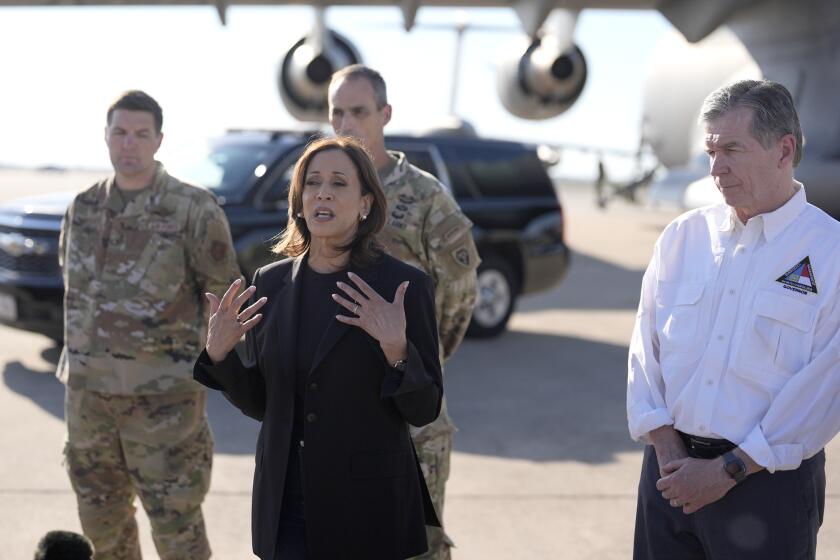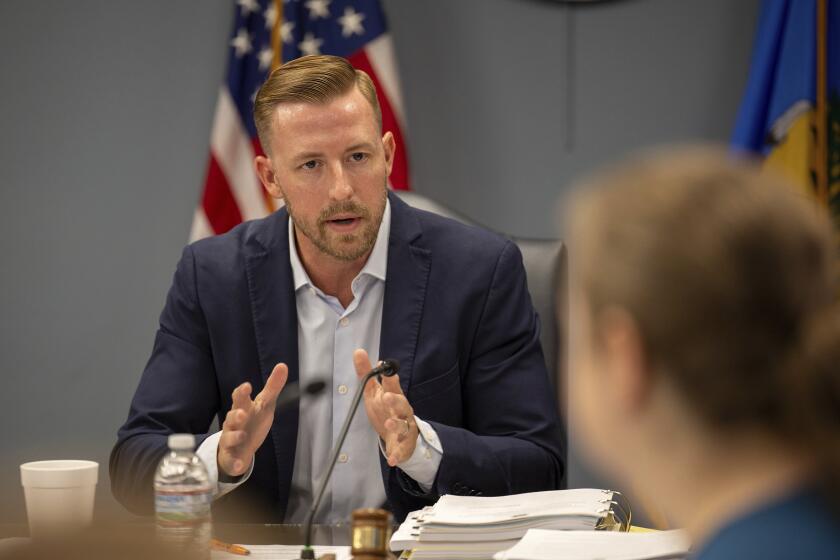Lebanon government collapses
The U.S. offered strong support for Lebanese Prime Minister Saad Hariri as his fragile government collapsed Wednesday over an investigation of the assassination of the former prime minister, his father.
Eleven ministers close to Lebanon’s Hezbollah-led opposition withdrew from Hariri’s Cabinet as the prime minister was in Washington speaking with President Obama. The move plunged Lebanon into a new period of uncertainty, dissolving a political status quo that has prevailed since a May 2008 agreement ended fighting between the country’s pro-Western political alliance and a camp backed by Syria and Iran.
Hezbollah, the powerful Shiite Muslim political organization and militia, and its Shiite and Christian allies pulled out of the government after months of negotiations brokered by Saudi Arabia and Syria failed to produce a compromise over the government’s stance on the investigation.
A tribunal has been examining the 2005 assassination of Hariri’s father, Rafik Hariri, a former prime minister and leader of the country’s Sunni community.
The tribunal is expected to accuse members of Hezbollah of complicity in the killing, prompting the group to warn that it would refuse to hand over any suspects or allow its name to be tarnished. Hezbollah also has demanded that Saad Hariri and his allies disavow the tribunal, a step the prime minister was apparently unwilling to take.
Both sides accused each other of being foreign dupes. But both sides also said they were open to further discussions.
“We are in a new political and ministerial crisis,” Boutros Harb, a lawmaker allied with Hariri, said at a news conference. “There is no room for bargaining over the tribunal and justice. We remain open to dialogue without compromising [our] general principles.”
Hours after the government coalition fell apart, Secretary of State Hillary Rodham Clinton called Hezbollah’s move “a transparent effort by those forces inside Lebanon, as well as outside Lebanon, to subvert Lebanon’s stability and progress.”
At an appearance in Doha, the capital of the Arabian Peninsula nation of Qatar, she also voiced strong support for the Special Tribunal for Lebanon, which has been beset with leaks and accused by Hezbollah of being a tool for Western interests.
“This tribunal is a creation of the United Nations and the Security Council,” she said. “It is supported by many governments, including my own. Its work will continue.”
The political crisis darkened the mood in Lebanon, a country of 4 million that has been enjoying a stretch of relative peace and economic prosperity. The army deployed extra troops throughout Beirut in case of possible skirmishes between young Sunni and Shiite men. The stock market slipped precipitously, with one cornerstone real estate conglomerate down 8%.
Obama met with Hariri in the Oval Office before the U.S. leader took off for Tucson to attend a memorial service for victims of last week’s shooting there. “The efforts by the Hezbollah-led coalition to collapse the Lebanese government only demonstrate their own fear and determination to block the government’s ability to conduct its business and advance the aspirations of all of the Lebanese people,” the White House said in an official statement.
However, another senior U.S. official, traveling in Qatar with Clinton, noted that Hezbollah and its allies so far have been using only legal means to try to bring down the government and there have been no signs that they are trying to mobilize supporters in the streets.
Lebanon’s political system is divided roughly into a pro-Western coalition called March 14 and an Iranian and Syrian-backed camp called March 8. They have been at odds since the 2005 assassination.
Under the 2008 peace agreement brokered in Qatar that ended an outbreak of fighting between the two camps, Hezbollah joined with its rivals to form two consecutive governments. In the latest dispute, Hezbollah officials and their allies said they were angered by Hariri’s refusal to convene an immediate Cabinet meeting to discuss the tribunal and other matters of state.
“Considering the results of the attempts to resolve the crisis and the U.S. pressures, and despite the responsiveness of the opposition that was blocked by the [government] … we decided to make way for others to create a government that can fulfill its duties,” said resigning Energy Minister Gebran Bassil, reading from a prepared statement in a televised news conference.
Times staff writers Daragahi reported from Beirut and Richter from Doha. Staff writer Christi Parsons in Washington and special correspondent Meris Lutz in Beirut contributed to this report.
More to Read
Sign up for Essential California
The most important California stories and recommendations in your inbox every morning.
You may occasionally receive promotional content from the Los Angeles Times.











